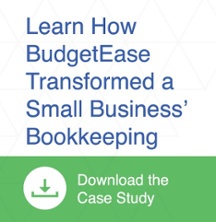
Sadly, we see theft from employees of our clients at least once or twice a year. This blog is to help you avoid the heartbreak that results in fraud – internal and external. As a business owner, it’s crucial to stay vigilant and take proactive steps to protect your business from potential scams. Here are some essential bookkeeping tips to help you safeguard your finances and ensure your business remains secure.
1. Educate Yourself and Your Team
Knowledge is your first line of defense. Ensure that you and your team are aware of common scams, such as phishing emails, fake invoices, requests to change an account used to pay an employee, and fraudulent payment requests. Regularly update your team on new scam tactics and encourage them to report any suspicious activity immediately. To make sure your team understands the importance of internal systems to prevent scams, have them sign a Security Procedure and include the protocol in your Employee Procedure Manual.
- Two-Factor Authentication for all email, cloud files, and bank accounts. I can’t stress this enough. As long as your accounts can’t be easily accessed by bad people, you are more than 80% to securing your confidential information.
3. Implement Strong Internal Controls
Over half of fraud is committed by company insiders or a combination of insiders and outsiders. I started my career as an Internal Auditor at a bank. They drummed into me that business owners have a responsibility not to give their team any opportunity to do something they will later regret. That means, using internal controls to limit the opportunity for fraud.
- Segregation of Duties: Ensure that no single employee has control over all aspects of a financial transaction. For example, the person who approves payments should not be the same person who processes them.
- Regular Reconciliations: Frequently reconcile bank statements, credit card statements, and other financial records to identify any discrepancies early by someone who is not processing expenses. We have seen employees paying their utility bills or tie their Venmo account from the company bank/credit card account.
- Approval Processes: Implement a multi-step approval process for large transactions and changes to vendor information.
- Background Checks: Conduct background checks on new employees.
- Scan the Payroll Register: Employees responsible for entering payroll may pay themselves more than their salary. Also, watch for unapproved bonuses.
4. Verify Vendor and Customer Information
Before making any payments or entering into agreements, verify the legitimacy of vendors and customers. This can include:
- Contact Verification: Use known contact information to verify requests for changes in payment details. Confirm changes on the phone, not via email.
- Monthly look at the Expenses by Vendor Summary Report in QBO. Scanning this report will put a spotlight on fraudulent vendors/payments.
5. Use Secure Payment Methods
Choose secure payment methods such as electronic funds transfers (EFT) or credit cards, which offer better fraud protection compared to checks. Use a system that has your vendor enter their bank information so that your team does not have access to this confidential information.
6. Monitor Financial Activity
Regularly review your financial statements, payroll registers, and transaction history for any unusual activity. Set up alerts for large or suspicious transactions to ensure timely detection of potential fraud.
7. Consult with Professionals
If you suspect fraud or need assistance in setting up fraud prevention measures, consult with a professional. They can provide expert advice and help you implement effective strategies to protect your business.
By staying informed and implementing these best practices, you can significantly reduce the risk of scams and ensure the financial security of your business. Being a victim of fraud, especially when from an employee is devastating. Protect yourself and your team from being a victim by following these simple procedures.
Let’s stay in touch --we are ready to help you out when you need us. Better Together!





